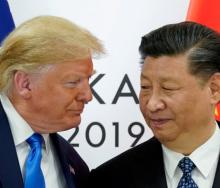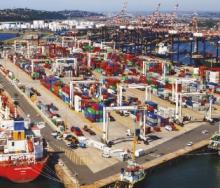Economists warn that Southern Africa risks regression into protectionism if government neglect of Customs Union continues.
The Southern African Customs Union agreement should be renegotiated to prevent disproportionate benefit to any one member, and to improve relations in general.
This is the view of three prominent agricultural economists in a report on the effects and perceived effects of Namibia’s dependence on sheep exports to South Africa.
“The core of this agreement is that goods can move freely between the member countries, with a single common external import tariff on all goods, eliminating tariffs and other restrictions on trade between the member states,” write Dr WA Lombard and Danie Naudé, agricultural economists with the University of the Free State, and UFS Professor Emeritus Johan Willemse.
“Other sub-objectives include promoting the free movement of goods among members, creating an environment of fair trade – for example, no subsidies or restrictions on exports to one another – and promoting investment and cooperation.”
However, in some South African sectors there is a feeling that “the spirit of the agreement is not always upheld, and that the South African government does not seem to take a stand on this issue”.
“Examples include the recent ban on the export of vegetables and citrus and restrictions on the export of our broiler meat to Namibia.”
They also point to Namibia’s complex formula to determine the white maize price, which is significantly higher than that in South Africa.
“Namibian millers must first exhaust Namibia’s production before they can import from South Africa, despite being a significant net importer of maize. The restrictions on imports are justified by the Namibian argument that it is necessary to establish and support their industries to become self-sufficient. Unfortunately, Namibian consumers end up paying much higher prices for food as a result.”
They also point to the fact that Namibian stakeholders feel South Africa benefits disproportionately compared with other members of SACU.
“They contend that South Africa focuses primarily on the free trade aspect, while neglecting other equally important components of the agreement.”
The economists say a lack of proper attention to all components of the agreement has prevented the region from fully enjoying the broader benefits of regional integration, such as fair-trade practices, economic cooperation, and equitable sharing of resources.
“If this imbalance continues, some countries will inevitably gain more while others benefit less, or not at all. Countries will then start to ‘protect’ their markets if they are of the opinion that South Africa does not take all the provisions into account in a balanced manner and also ignore the views of smaller members.
“All SACU members have, at times, implemented unilateral measures that undermine the agreement.
“For any significant change, the agreement must be renegotiated, with a focus on ensuring equal attention to all components, allowing for balanced benefits for all member states.”
SACU, consisting of member countries South Africa, Namibia, Botswana, Lesotho, and Eswatini, is the oldest Customs Union agreement in the world.













